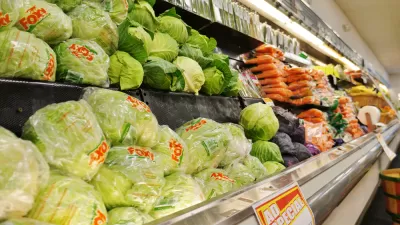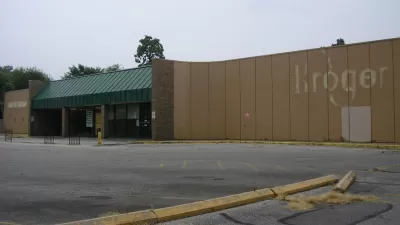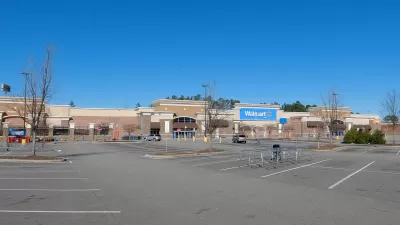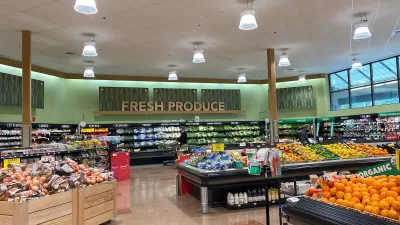Research indicates that opening a supermarket in an area that needs it is not enough. The ownership model and relationship to the community are essential to long-term success.

Catherine Brinkley at the University of California, Davis writes about her team’s research on the types of supermarkets that have successfully operated in food deserts. "A shuttered supermarket is more than just a business failure. It can perpetuate the food desert problem for years and prevent new stores from opening in the same location, worsening a neighborhood’s blight."
The researchers identified 71 planned supermarkets since 2000 in food deserts. "Of those, 21 were driven by government, 18 by community leaders, 12 by nonprofits and eight by commercial interests. Another dozen were driven by a combination of government initiative with community involvement," notes Brinkley.
They found that 22 of the community and nonprofit supermarkets opened and have continued operations. "In contrast, nearly half of the commercial stores and a third of the government developments have closed or didn’t it make it past planning. Five of the government/community projects also failed or were canceled," says Brinkley.
They also found that most of the community supermarkets, 16 of 18, operated as cooperatives and promoted community engagement and involvement. "The success of a supermarket intervention is predicated on use, which may not happen without community buy-in. Supporting cooperatives is one way to ensure that shoppers show up," adds Brinkley.
FULL STORY: Why community-owned grocery stores like co-ops are the best recipe for revitalizing food deserts

Alabama: Trump Terminates Settlements for Black Communities Harmed By Raw Sewage
Trump deemed the landmark civil rights agreement “illegal DEI and environmental justice policy.”

Study: Maui’s Plan to Convert Vacation Rentals to Long-Term Housing Could Cause Nearly $1 Billion Economic Loss
The plan would reduce visitor accommodation by 25% resulting in 1,900 jobs lost.

Planetizen Federal Action Tracker
A weekly monitor of how Trump’s orders and actions are impacting planners and planning in America.

Waymo Gets Permission to Map SF’s Market Street
If allowed to operate on the traffic-restricted street, Waymo’s autonomous taxis would have a leg up over ride-hailing competitors — and counter the city’s efforts to grow bike and pedestrian on the thoroughfare.

Parklet Symposium Highlights the Success of Shared Spaces
Parklets got a boost during the Covid-19 pandemic, when the concept was translated to outdoor dining programs that offered restaurants a lifeline during the shutdown.

Federal Homelessness Agency Places Entire Staff on Leave
The U.S. Interagency Council on Homelessness is the only federal agency dedicated to preventing and ending homelessness.
Urban Design for Planners 1: Software Tools
This six-course series explores essential urban design concepts using open source software and equips planners with the tools they need to participate fully in the urban design process.
Planning for Universal Design
Learn the tools for implementing Universal Design in planning regulations.
Caltrans
Smith Gee Studio
Institute for Housing and Urban Development Studies (IHS)
City of Grandview
Harvard GSD Executive Education
Toledo-Lucas County Plan Commissions
Salt Lake City
NYU Wagner Graduate School of Public Service





























